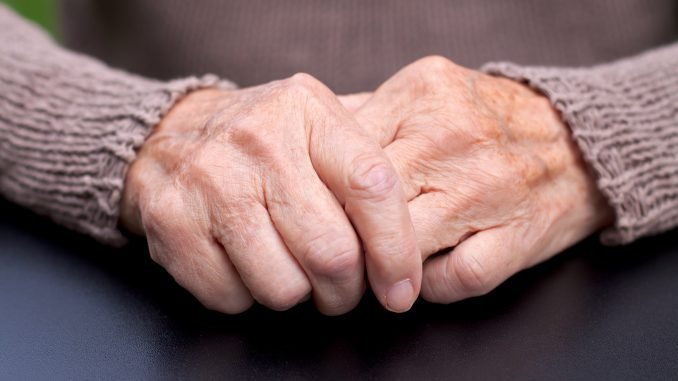
Parkinson’s affects the central nervous system and its most visible symptom is shaking limbs, which interferes with the daily activities of people with the disease. The device, which is still in the testing phase, will help reduce the uncontrollable shaking.
The device is developed at Kaunas Science and Technology Park by Fidens in cooperation with students of the nearby Kaunas University of Technology.
The device has so far been tested with about a dozen people with Parkinson’s disease. It reduced the shaking of hands by about a fifth, but its creators expect that they could achieve 80%.
“The device can identify the shaking of hands and create vibrations to cancel it out. This is how we try to help patients with Parkinson’s, improve their quality of life, allow them to perform everyday tasks like eating, drinking tea, etc.,” says Mantas Venslauskas, the CEO of Fidens.
Although at the current stage the device only reduces tremors by one fifth, its developers says they can achieve 50% reduction by the end of this year and 80% after that.
“I think that with such a device, at least I’d need to take less medication for my symptoms,” says Rimas Kunickis who was diagnosed with Parkinson’s eight years ago. “The shaking is a big nuisance and I have to constantly up the dosage. This drug is addictive and its effects grow weaker with time.”
Parkinson’s is one of the most common degenerative diseases of the nervous system that affects over 10 million people worldwide and about 12,000 in Lithuania.
Fidens believes that its invention could find a market not just in Lithuania, but also in countries like the United States.
“The market is big and there’s a need for such a device. There are no analogous solutions available on the market – we know about similar devices in development, but none of them have reached the market yet. We think we can produce the final prototype in about a year which could then go on the production line,” Venslauskas says.
The device could cost about €300.

Be the first to comment